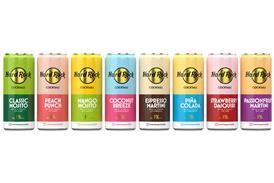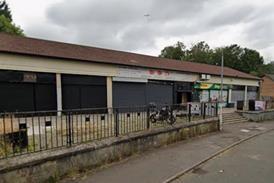How important are cigarette sales to your business, and to what extent do they prompt other purchases in your store?
Dee Sedani: They're a footfall driver, not so much a profitmaker, but they do bring customers in.
Barrie Seymour: Cigarette sales are very important and they're a footfall driver for us.
Karl Rasmussen: Cigarettes represent about 16% of our sales, so they're important to our business. During the day, 90% of cigarette- purchasing customers buy other products.
Simon Biddle: Cigarette sales are quite important and they do help you with other products, but not in a major way for us because tobacco is only 15% of our business.
If there was a ban on displaying tobacco, how would it affect your business?
DS: I don't think it's really going to matter, because people will always smoke.
BS: If there was a ban it would affect our business greatly.
KR: It really depends on the way in which the ban is implemented and the rules or guidelines that we have to adhere to. If we're allowed to advertise the fact that we sell tobacco, then we'll pick up passing trade and holidaymakers. If, however, we can't let the consumer know, then it'll have a big effect on tobacco sales and related products.
SB: It would knock sales for us by about 15%.
Do you think you'll be able to use the space for something else? If so, what, and do you think that could prove a successful alternative?
DS: I'm not sure yet - I haven't thought too much about it - but spirits come to mind.
BS: Yes, we could use the space for more beers, wines and spirits.
KR: If we're unable to display tobacco products then we plan to increase our range of spirits, and this would give us the additional space we need to do so.
SB: It could work out to be more profitable if we could find the ideal alternative, but it's just finding it.
It's estimated that moving tobacco from visible display would cost each store £2,000. Could you afford to make those changes? If not, what might you do?
DS: I could afford it, but that's not the point. The government should pay because they want the move and not me.
BS: Yes, we could afford to pay for it, but why should we have to foot the bill? In Ireland they have a great system that uses a vending machine which sits where the gantry is, and
is linked to your epos, or a freestanding unit on the counter. Maybe we could look into those.
KR: If we have no alternative
than to pay up then obviously we will have to spend the money on moving tobacco products under
the counter - we would prefer to spend the money on generating
new business, though. However,
we cannot afford to lose our sales
of tobacco products because they
make up such a large part of our business.
SB: Yes, we could do it because tobacco sales are not what our business relies on.
If branding on packs was banned, how difficult would it make trading in tobacco?
DS: I'm not sure yet. Colour packs would make life easier.
BS: A nightmare.
KR: If branding on tobacco products was banned and the products were under the counter in any case, it really wouldn't be an issue. If, however, the products were still on display, that would cause confusion for both customers and staff.
SB: I think people who want to smoke always will, so you'll always have your hard core.
If packs of 10 cigarettes were banned, what impact would that have on your business, and who mainly buys 10s at the moment?
DS: I would be in favour of getting rid of 10s because trading up would mean a better margin for me than 10s. It's hard to say, but it's not kids.
BS: Not a problem. We haven't sold 10s for 10 months now. Our average weekly sales of L&B 20s was £185.25 per week when we had the 10s, but is now £269.50 per week, and we're about 28% up week on week. We don't have problems with kids pestering our customers to buy 10s. Plus, they can't afford to buy 20 so, for me, ban the 10s and keep the display!
KR: If 10 packs of cigarettes were banned it might well have quite an impact on our business, because a third of our cigarette sales are packs of 10. We sell packs of 10 right across the range of customers - even people who would normally roll their own cigarettes buy a pack of 10 when they're going out in the evening. Many of our customers can't afford to buy a pack of 20 at the end of the week or month, when money is a bit tight and they're waiting for their next payday. We're in an area where there's a high elderly population and pensioners will often buy a pack of 10 in the hope of making their money go a little further - even though they may return later in the day for another pack of 10.
SB: You get a lot of people who buy 10s believing they're going to cut down on smoking or save money, so they're popular.
To what extent are you concerned that the proposed measures will increase the illegitimate trade in tobacco?
DS: Of course it will increase the illegitimate trade in cigarettes. It's the next route for cheaper fags, and it's on the increase as it is.
BS: I'm not at all concerned.
KR: In this area there's already a big problem with black market tobacco products - we've noticed this because we have a large number of customers who purchase cigarette papers and filters but never seem to buy any other tobacco products
from us.
SB: I would be concerned, because the illegitimate trade is already very big now, so it will only increase, and represents a sort of semi-legal drug smuggling.
Do you think any of the proposed measures would reduce youth smoking?
DS: No, not at all.
BS: Yes, but only by taking out the 10s and leaving the gantry. And just have so many outlets per postcode.
KR: Because our sales of 10 cigarettes range across all age groups - all over 18 of course - I think it would have far more impact on our business than it would on reducing youth smoking. All of our staff are strict on age-related issues and wouldn't serve anyone they thought looked underage without identification. So it would actually penalise those in the community who simply cannot afford to buy a pack of 20, thus forcing them into the arms of the black marketeers. The proposal to situate cigarettes under the counter wouldn't have such a large impact on us as banning packs of 10. The majority of customers wouldn't have a problem asking for cigarettes from under the counter because they have to ask for them anyway.
SB: I like to think so, but they could also push young people into doing other illegal substances.




















No comments yet